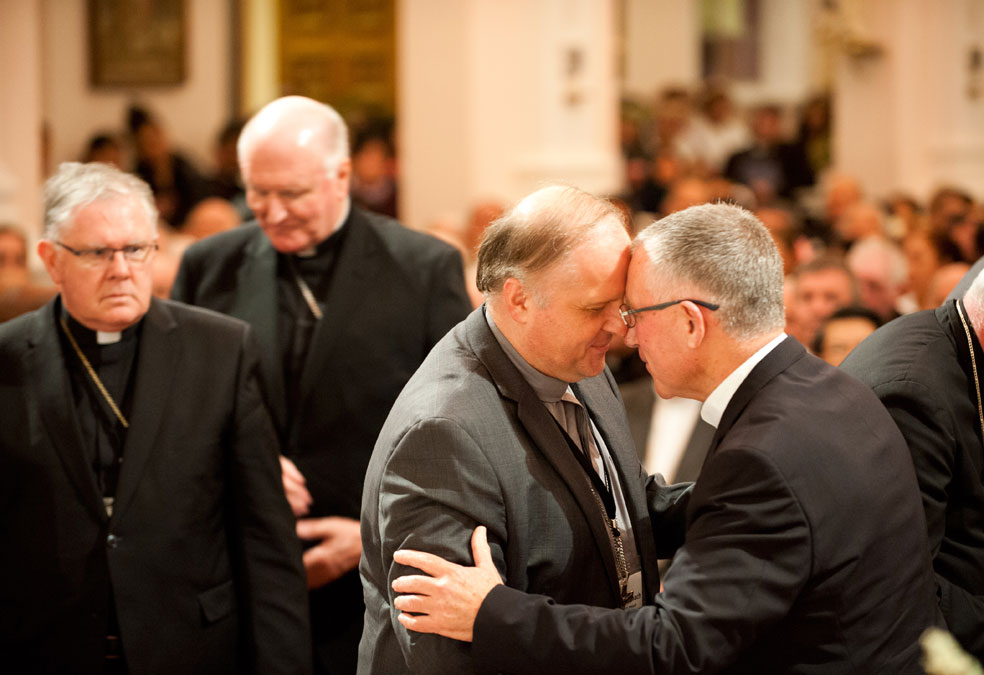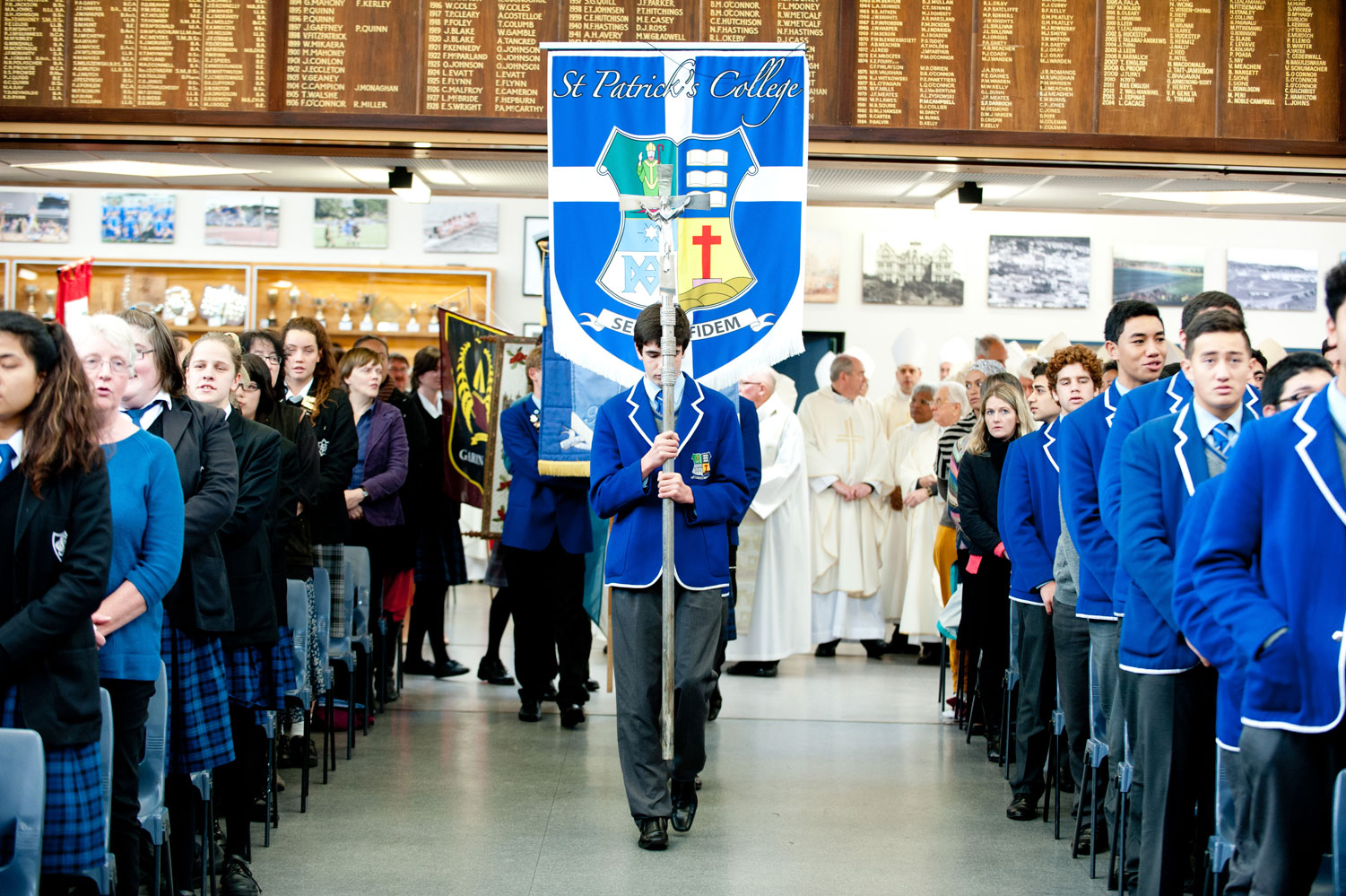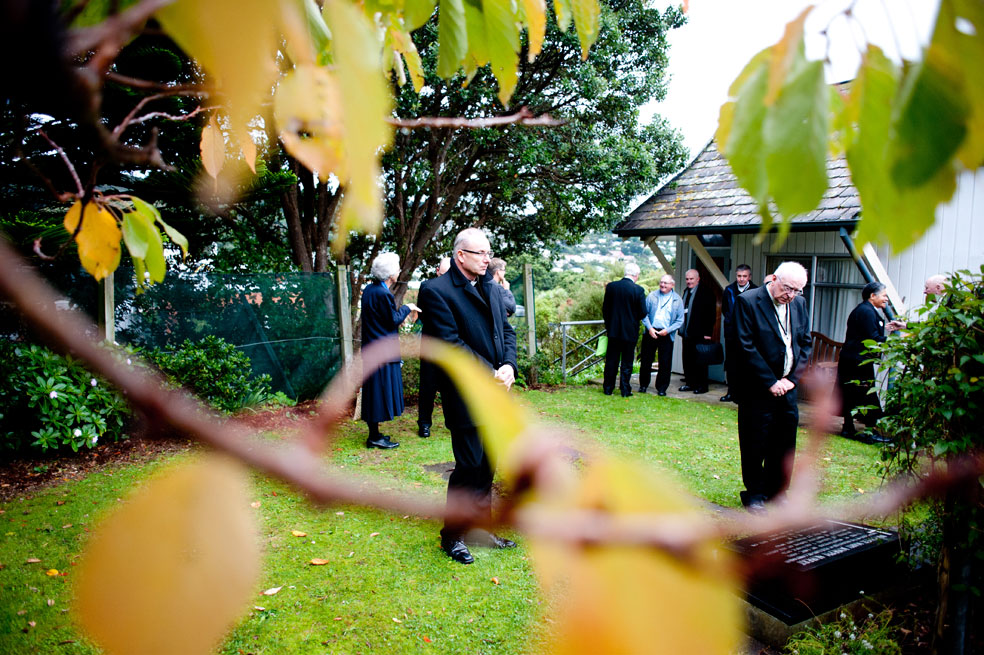 June 2014
June 2014
Opinion
Archbishop John Dew
Last month Wellington hosted the four-yearly plenary assembly of the bishops of the Federation of Catholic Bishops of Oceania (FCBCO). But it would be no surprise if anyone attending the opening Mass thought they had been carried off to the Pacific Islands, with the vibrant contribution of the Samoan and Tokelauan communities. It was one of those moments when I realised how deep is the communio, the life of the Trinity we share at baptism that binds us together as the Catholic Church in Oceania.
When you look at a map or, better still, a globe of Oceania, you realise how huge it is, covering more than one-third of the earth’s surface. What a responsibility comes with this beautiful gift of God’s creation and the people who live here. As bishops we were aware of this, especially when, on the opening day, Bishop Eugene Hurley of Darwin addressed the question of Australian immigration policy, detention centres and the treatment of asylum seekers who are currently detained on Manus Island, Nauru, Christmas Island and several camps in Australia. These places are located in three of the four FCBCO areas, but it also challenges us as New Zealanders – are we doing all we can to respond with gospel hospitality towards those who approach our shores?
 Several bishops from Papua New Guinea and Bishop Paul Mea, MSC, from Kiribati responded with a reflection on their pastoral experience at the service of these asylum seekers as well as the impact their presence has on the local island communities. Bishop Eugene’s words remain with us: in response to the cry ‘turn all the boats around’, he says, ‘I am not interested in the pastoral care of boats, but I am deeply interested in the pastoral care of the people in them’.
Several bishops from Papua New Guinea and Bishop Paul Mea, MSC, from Kiribati responded with a reflection on their pastoral experience at the service of these asylum seekers as well as the impact their presence has on the local island communities. Bishop Eugene’s words remain with us: in response to the cry ‘turn all the boats around’, he says, ‘I am not interested in the pastoral care of boats, but I am deeply interested in the pastoral care of the people in them’.
The Vatican II document The Church in the Modern World opens with the words, ‘the joys and hopes, the griefs and anxieties of the people of this age’ are those of the followers of Christ. We saw, heard and felt – some, even with tears – the pain of the people of Christchurch in the presentation of Mike Stopforth and Bishop Barry Jones on their ongoing post-earthquake trauma, especially as it affects already fragile families. As New Zealanders, we are blessed with good resources for rebuilding lives and cities, but as we reflected further, we realised how much more vulnerable our Pacific neighbours are to natural disasters, the effects of climate change and rising sea levels and insufficient infrastructure to respond to these. Archbishop Peter Loy Chong of Suva took up this theme again in his address, ‘Reading the Signs of the Fiji Times’.
One of the ‘signs of the times’ we read carefully relates to the rapidly changing social context for the family and marriage in all of the countries of the FCBCO. Later this year, I will attend the Synod of Bishops in Rome which Pope Francis has called to examine ‘The Pastoral Challenges of the Family in the Context of Evangelisation’. Over the Christmas break, I read the ‘joys and hopes, griefs and anxieties’ which more than 2500 New Zealanders wrote in response to our invitation for their reflection on marriage and the family. We shared a summary of these responses at the assembly, and know that this consultation will play a key role in our presentations at the synod later this year.
 Even in the four full days of the assembly, bound together with regular prayer, we found time for more relaxed occasions. Two highlights stand out for me: on Tuesday we visited the Home of Compassion – for some of the bishops their first time to meet Suzanne Aubert – and joined the community for Eucharist. On Wednesday, we celebrated Mass with students from the nine colleges of the archdiocese at St Patrick’s College, Kilbirnie. Bishop Adrian Smith SM, of Honiara, both inspired and entertained us with his homily in English and Pidgin. Later, I remarked how grateful I was to all those more than 80 bishops for their prayer for vocations to the priesthood in the Archdiocese of Wellington.
Even in the four full days of the assembly, bound together with regular prayer, we found time for more relaxed occasions. Two highlights stand out for me: on Tuesday we visited the Home of Compassion – for some of the bishops their first time to meet Suzanne Aubert – and joined the community for Eucharist. On Wednesday, we celebrated Mass with students from the nine colleges of the archdiocese at St Patrick’s College, Kilbirnie. Bishop Adrian Smith SM, of Honiara, both inspired and entertained us with his homily in English and Pidgin. Later, I remarked how grateful I was to all those more than 80 bishops for their prayer for vocations to the priesthood in the Archdiocese of Wellington.
Now, the bishops have gone home, strengthened by the prayer and communio of these days, as well as the generous hospitality of so many Wellingtonians.
To all of you who organised this event to the finest detail, to those who prayed for us or helped in any way, I offer a heartfelt THANK YOU. I am grateful to God for the joy and privilege of being your bishop.